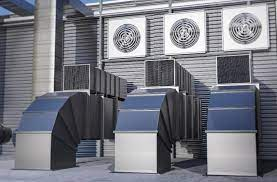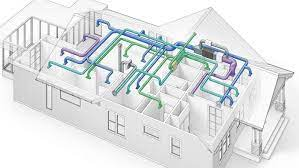What is HVAC and how does it work?
HVAC is an umbrella term for heating, ventilation, and air conditioning systems, which are usually installed in buildings to regulate the temperature, heating them in winter and cooling them in summer. HVAC is also sometimes used to refer to refrigeration. HVAC services regulate temperature, humidity and air quality in a residential or commercial building.
Temperature
HVAC systems are either independent or part of a network that maintains a constant temperature by heating and cooling when needed. Water can be heated to power radiators such as those found in your home, or underfloor heating. These systems can be powered by steam. Coolant can be used to lower temperatures or chill water. Heat transfer coils are used in both heating and cooling systems to lower or raise ambient temperatures depending on need.
Humidity, condensation and humidity
The amount of water in the air is what determines the humidity levels. It is important to note that when the air contains less water, condensation can occur. When air is cooled, less water is present, which can lead to condensation. Dehumidification might be needed. Dehumidification and changing ventilation levels are usually used to regulate humidity. However, humidification is needed if the air is too dry.
HVAC services in commercial buildings are often provided by AHUs, or air handling units. They are connected to a system of ducts which allows air to be added to or removed from the interior spaces. When you need more information on Air con Stroud, take a look at a site like acecc.co.uk/air-conditioning-near-me/air-conditioning-stroud
Contacting experts in the field is your first step if you’re interested in learning more about how HVAC systems can benefit your property, how they work and their role in air and temperature regulation. A reputable company will be able provide you with all the information that you need about installing, maintaining or obtaining an HVAC system. This way you will get the best advice and units that are suitable for your requirements.
It is important to consider the whole system when designing a HVAC system. This is true even if it is composed of independent units. The system as a whole must work together intelligently to provide heating, cooling and humidity at a consistent level. When other factors are included, like solar energy or extreme weather conditions, the system can be even more complex.











Post Comment